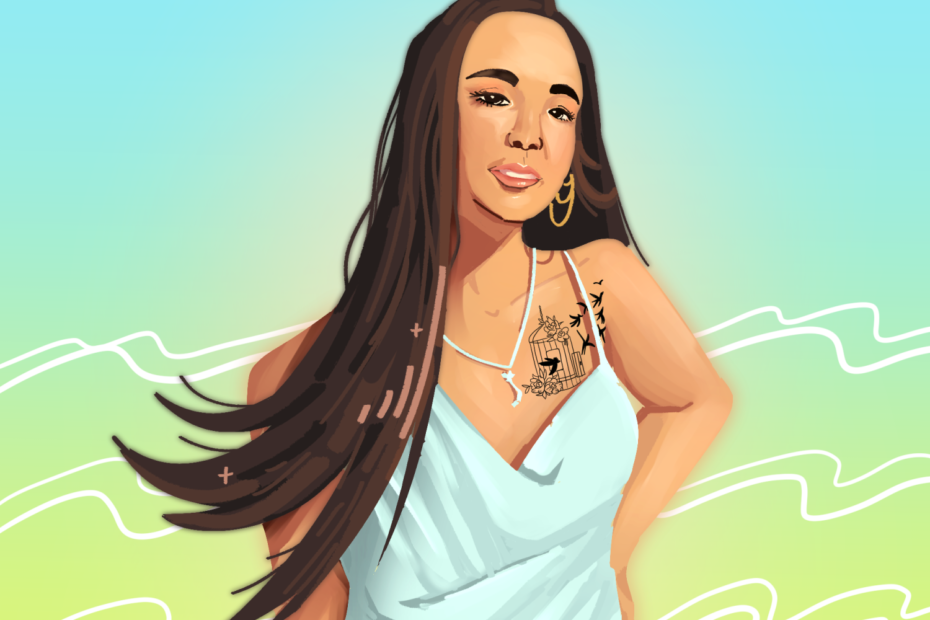Prior to summer 2021, I never considered myself an organizer. When I thought of the title “organizer,” I always thought of people who work full-time at non-profit organizations, organize rallies and campaigns, and dedicate every minute of their lives to social justice. But through the Seeding Change Fellowship, I realized that there is much more depth and nuance as to what it means to be an organizer.
Upon starting the fellowship, I was initially uncomfortable being surrounded by other organizers with such rich and diverse organizing experiences. I had just finished my undergraduate experience at UC Irvine, yet I felt like I had such little organizing experience compared to other fellows around me, who were notably younger, still in college, and seemed “more knowledgeable.” I felt like others knew more than I did about social justice issues and were more equipped with organizing skills. Whether or not that is true, it took a toll on my sense of belonging and community. I felt a deep sense of imposter syndrome as someone who had to prioritize their mental health over doing more commonly known forms of organizing, such as campaigns and protests. In simpler words, I spent and continue to spend a majority of my time and energy managing my mental illnesses, and because that takes a lot out of me, I never felt like I had the right to call myself an organizer. Oftentimes, social justice movements and organizing spaces can feel ableist by the way disabled folx are not centered and accommodated for. And as a disabled, queer woman, daughter of Vietnamese boat refugees, I find it easy to internalize messages that tell me that there’s no place for me in the movement. But SCF taught me otherwise.
The orientation at the beginning of the fellowship was–although intense–such an essential, enriching component of the fellowship. We discussed many topics, including indigenous sovereignty, capitalism, etc., thus laying the foundation of knowledge needed to embark on our fellowship working with our host sites for the summer. That week was probably the first time that I felt truly at home with a community of fellow radical Asian American organizers. Prior to SCF, I never felt like I had a community like this, even at UC Irvine with a large Asian American population that I feel remains largely non-politicized. To finally have that felt rejuvenating and reassuring. Because there were others around me who shared similar values and goals of liberation and justice, the community I gained from Seeding Change instilled a sense of hope in me again. It made me feel like that as long as we continue to have and build with each other, we can and will liberate ourselves.
The experience I had with SCF taught me so much about myself and what kind of world I want to reimagine for and with my comrades. It taught me to redefine my queerness and what it means to be queer. That the idea of being “queer enough” is just a facade and internalized biphobia I’m still working through. It taught me to unlearn internalized capitalism. That human beings on this earth should have access to food, shelter, and joy, no matter who they are or what they have been subject to. It taught me to come to terms with my disabilities, despite them being “invisible,” and claim the identity of being disabled, which is something I previously would shy away from. My experience in SCF reassured me that I am enough as I am and that a better world can be built.
Since finishing SCF, I continue staying in touch with the other fellows who I see continue to do the great work that they have committed themselves to. As for myself, I still feel unsure of my foreseeable future in organizing in the movement as I continue to navigate the transition into postgrad/adulthood. Still, I feel more reassured knowing that I have a community that I know I can turn to for support and insight. Moving forward, I carry with me more clarity on my role in the community and courage to commit myself to liberation and justice for marginalized communities in the long-run, in whatever capacity I can.
It’s a bit amusing to me too that SCF came to me at a point in my life that it did. I had applied several times years prior, throughout my time in undergrad, and was waitlisted or rejected for various reasons. But, in retrospect, the timing was not right. 2021 was the year that I felt most deeply curious and open-minded about organizing, and at the same time, most committed to learning (and unlearning) what that would look like for me. That year, as I closed a chapter in my life, graduating from UC Irvine and entering another chapter of adulthood and exploring how I want to dedicate myself to the movement, I like to think that SCF entered my life at a time when I needed it most. Without this experience, I’m not sure where I would be today, and for that, I am truly, deeply grateful.
